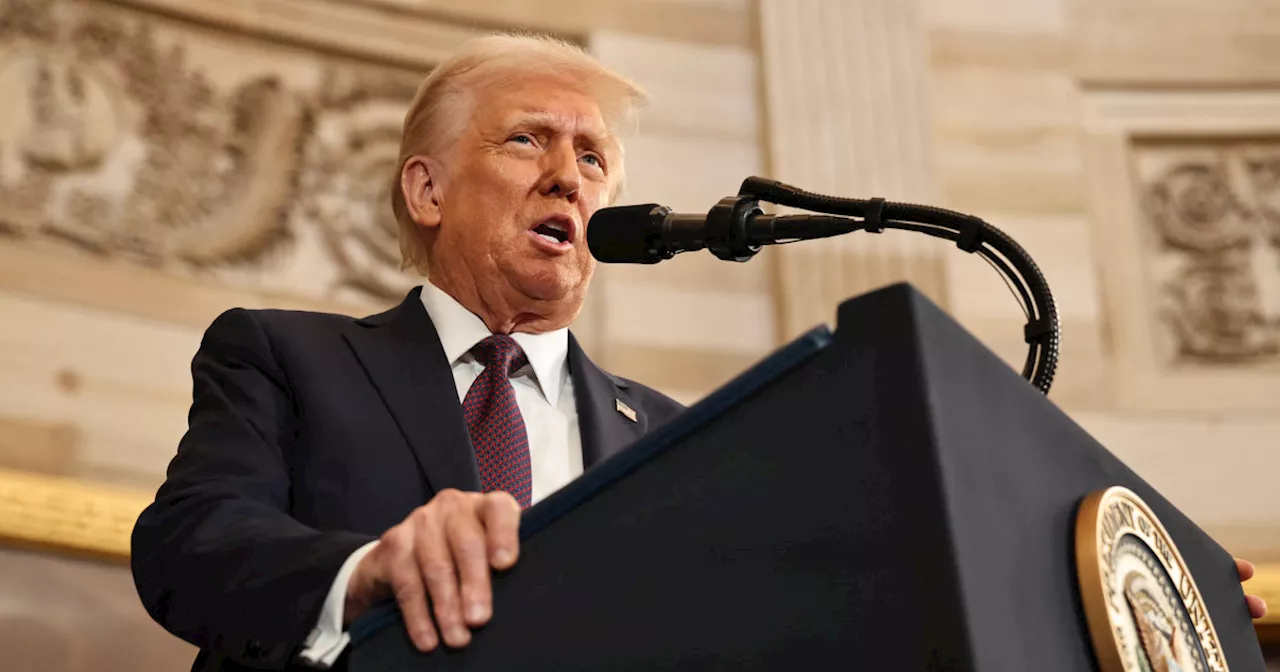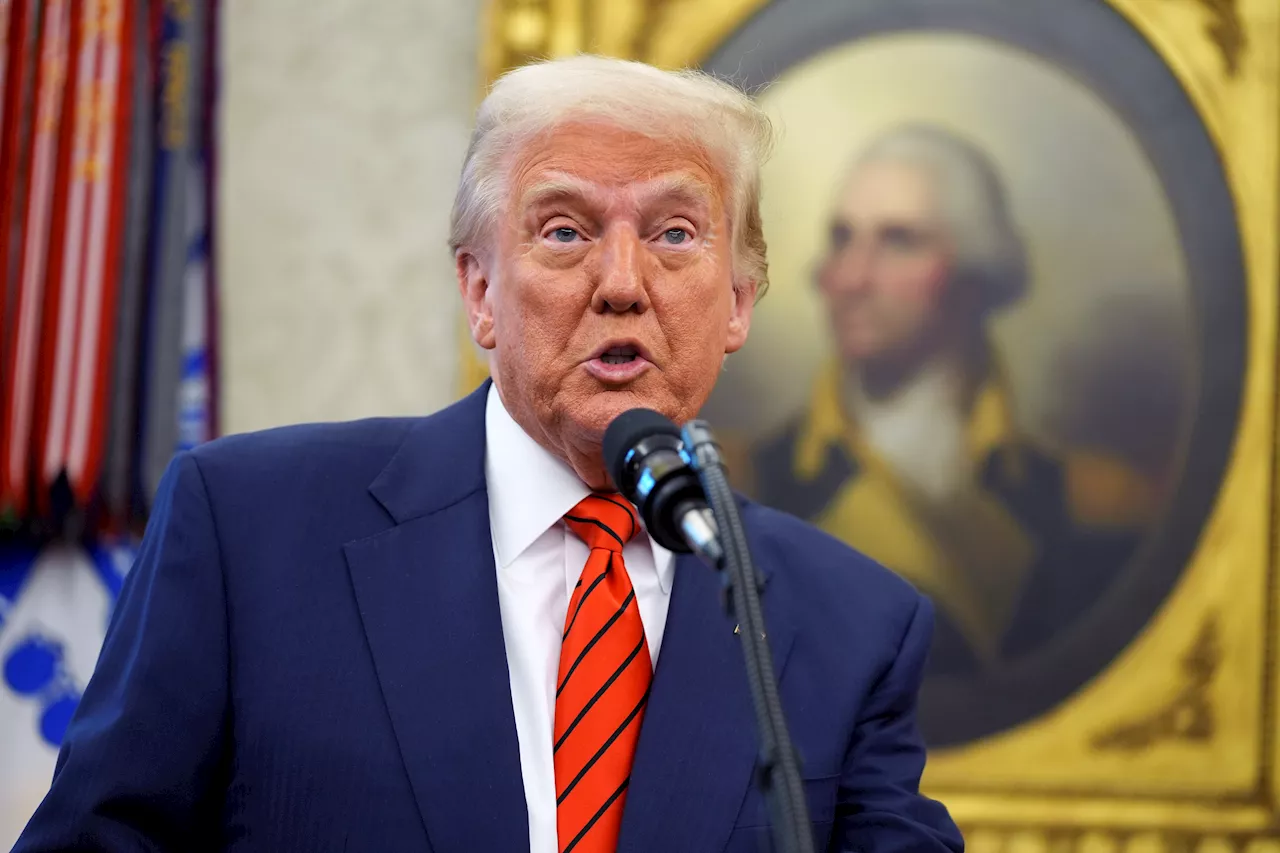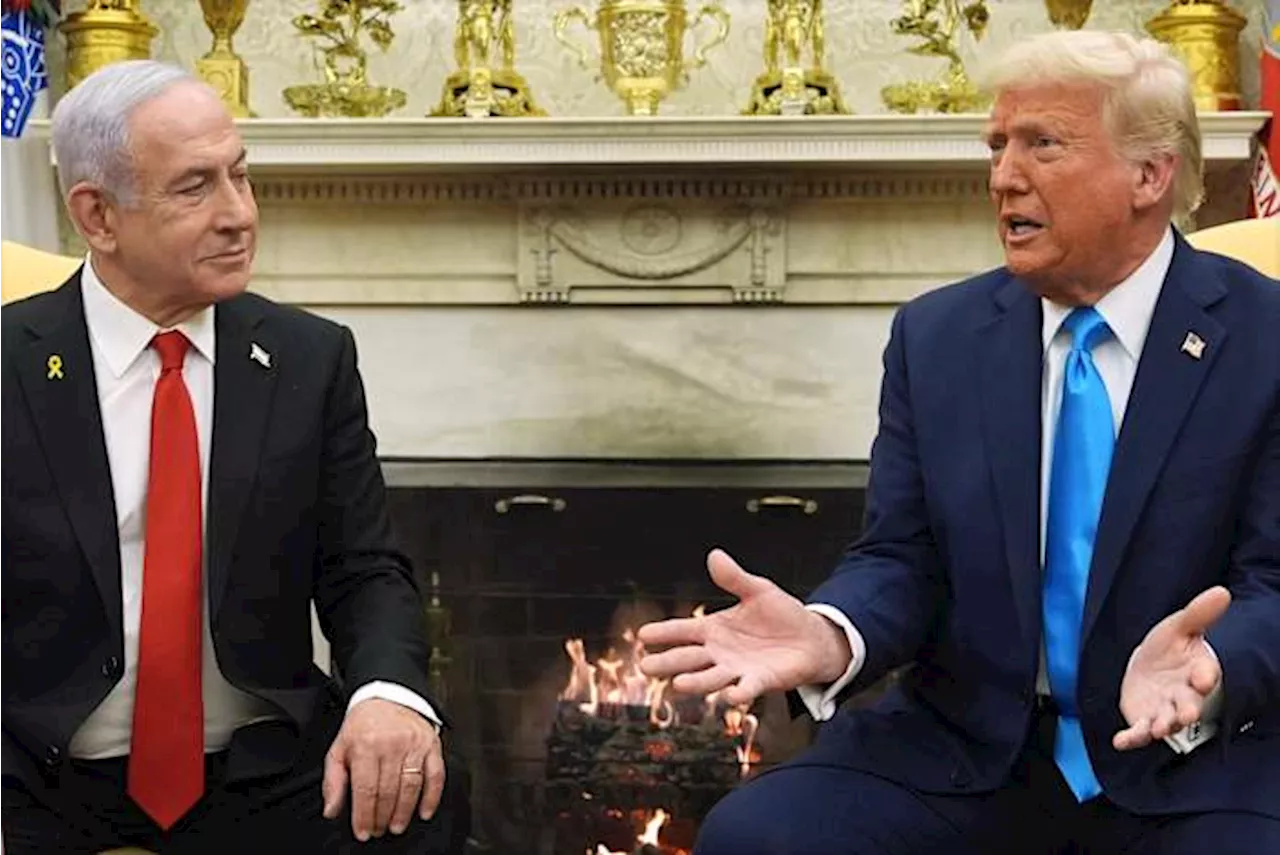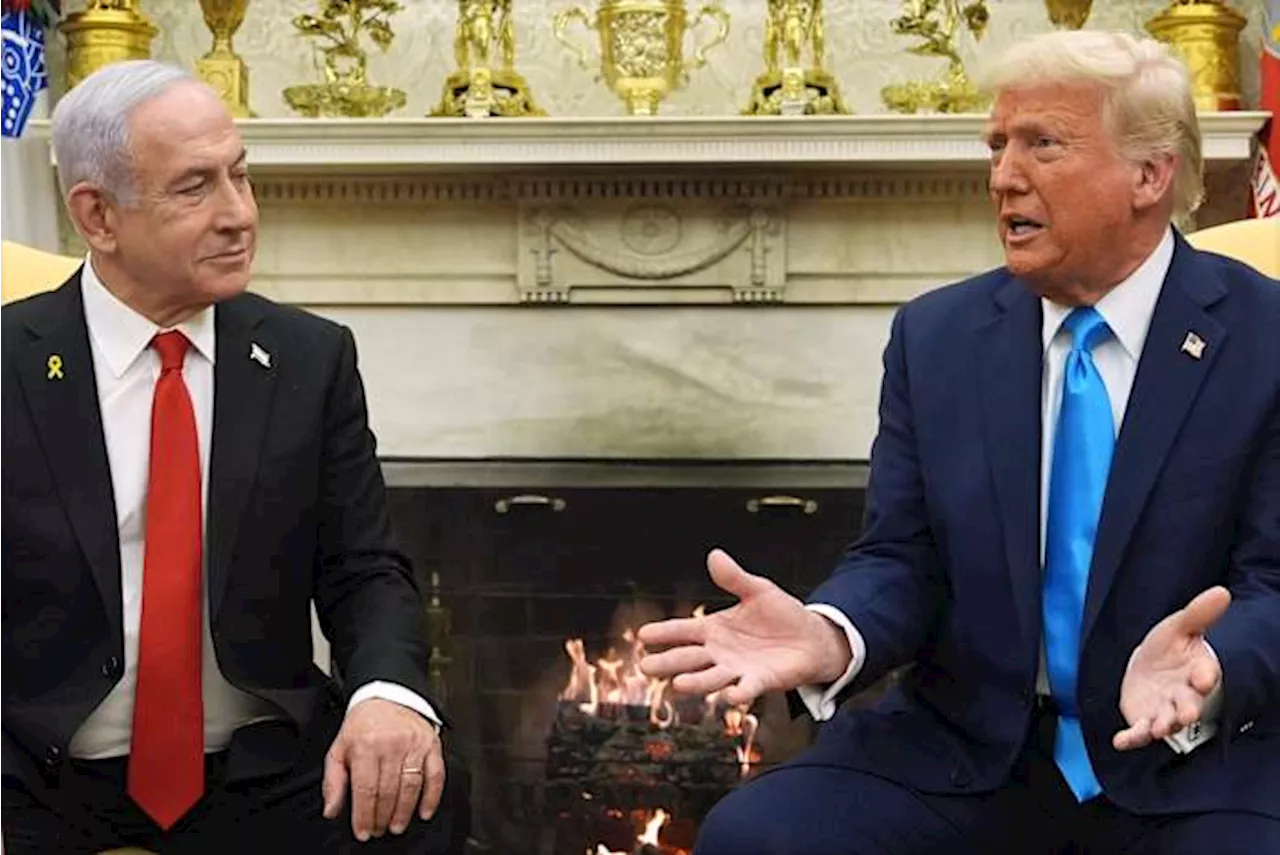President Donald Trump signed an executive order imposing financial sanctions and visa restrictions on International Criminal Court (ICC) officials involved in investigations of U.S. citizens or allies. The order, timed with Israeli Prime Minister Benjamin Netanyahu's visit to Washington, accuses the ICC of improperly targeting the United States and Israel. Neither the U.S. nor Israel are parties to the Rome Statute that established the ICC, and Trump maintains that the court lacks jurisdiction and legitimacy in the U.S.
The order includes financial sanctions and visa restrictions against ICC officials found to have assisted in investigations of U.S. citizens or allies.President Donald Trump on Thursday signed an executive order sanctioning the International Criminal Court, accusing the body of improperly targeting the United States and Israel .
The court said there was reason to believe that Netanyahu and Gallant used “starvation as a method of warfare” by restricting humanitarian aid and intentionally targeting civilians in Israel’s campaign in Gaza — charges Israeli officials dismissed as false and antisemitic.The expected signing of this order this afternoon appears timed to the Netanyahu's visit to Washington, which included an Oval Office meeting Tuesday.
“The ICC was designed to be a court of last resort,” the fact sheet on the executive order reads. “Both the United States and Israel maintain robust judiciary systems and should never be subject to the jurisdiction of the ICC.”Earlier this year, the House passed a bill to sanction the ICC that was later blocked by Democrats the Senate.
INTERNATIONAL CRIMINAL COURT UNITED STATES ISRAEL Sanctions Diplomacy
United States Latest News, United States Headlines
Similar News:You can also read news stories similar to this one that we have collected from other news sources.
 Trump to Sign Executive Order Sanctioning International Criminal CourtPresident Donald Trump will sign an executive order imposing sanctions on the International Criminal Court (ICC) for allegedly targeting the United States and Israel. The order will include financial sanctions and visa restrictions against ICC officials involved in investigations of U.S. citizens or allies. The move comes after the ICC issued arrest warrants for Israeli Prime Minister Benjamin Netanyahu and former Defense Minister Yoav Gallant, accusations Israel dismisses as false and antisemitic. Trump argues the ICC has no jurisdiction over the U.S. or Israel, and the order is timed to coincide with Netanyahu's visit to Washington.
Trump to Sign Executive Order Sanctioning International Criminal CourtPresident Donald Trump will sign an executive order imposing sanctions on the International Criminal Court (ICC) for allegedly targeting the United States and Israel. The order will include financial sanctions and visa restrictions against ICC officials involved in investigations of U.S. citizens or allies. The move comes after the ICC issued arrest warrants for Israeli Prime Minister Benjamin Netanyahu and former Defense Minister Yoav Gallant, accusations Israel dismisses as false and antisemitic. Trump argues the ICC has no jurisdiction over the U.S. or Israel, and the order is timed to coincide with Netanyahu's visit to Washington.
Read more »
 Trump Signs Executive Order Sanctioning International Criminal CourtPresident Donald Trump is signing an executive order that imposes financial sanctions and visa restrictions on International Criminal Court officials involved in investigations of US citizens or allies. The order cites the ICC's alleged improper targeting of the United States and Israel, specifically referencing investigations into Israeli actions in Gaza.
Trump Signs Executive Order Sanctioning International Criminal CourtPresident Donald Trump is signing an executive order that imposes financial sanctions and visa restrictions on International Criminal Court officials involved in investigations of US citizens or allies. The order cites the ICC's alleged improper targeting of the United States and Israel, specifically referencing investigations into Israeli actions in Gaza.
Read more »
 Trump to sign an executive order sanctioning the International Criminal CourtPresident Donald Trump on Thursday will sign an executive order sanctioning the International Criminal Court, accusing the body of improperly targeting the…
Trump to sign an executive order sanctioning the International Criminal CourtPresident Donald Trump on Thursday will sign an executive order sanctioning the International Criminal Court, accusing the body of improperly targeting the…
Read more »
 Trump signs order imposing sanctions on International Criminal Court over investigations of IsraelPresident Donald Trump has signed an executive order imposing sanctions on the International Criminal Court over investigations of Israel.
Trump signs order imposing sanctions on International Criminal Court over investigations of IsraelPresident Donald Trump has signed an executive order imposing sanctions on the International Criminal Court over investigations of Israel.
Read more »
 Trump signs order imposing sanctions on International Criminal Court over investigations of IsraelPresident Donald Trump has signed an executive order imposing sanctions on the International Criminal Court over investigations of Israel.
Trump signs order imposing sanctions on International Criminal Court over investigations of IsraelPresident Donald Trump has signed an executive order imposing sanctions on the International Criminal Court over investigations of Israel.
Read more »
 Trump signs order imposing sanctions on International Criminal Court over investigations of IsraelPresident Donald Trump has signed an executive order imposing sanctions on the International Criminal Court over investigations of Israel. Trump signed the order at the White House on Thursday. Neither the U.S. nor Israel is a member of or recognizes the court.
Trump signs order imposing sanctions on International Criminal Court over investigations of IsraelPresident Donald Trump has signed an executive order imposing sanctions on the International Criminal Court over investigations of Israel. Trump signed the order at the White House on Thursday. Neither the U.S. nor Israel is a member of or recognizes the court.
Read more »
